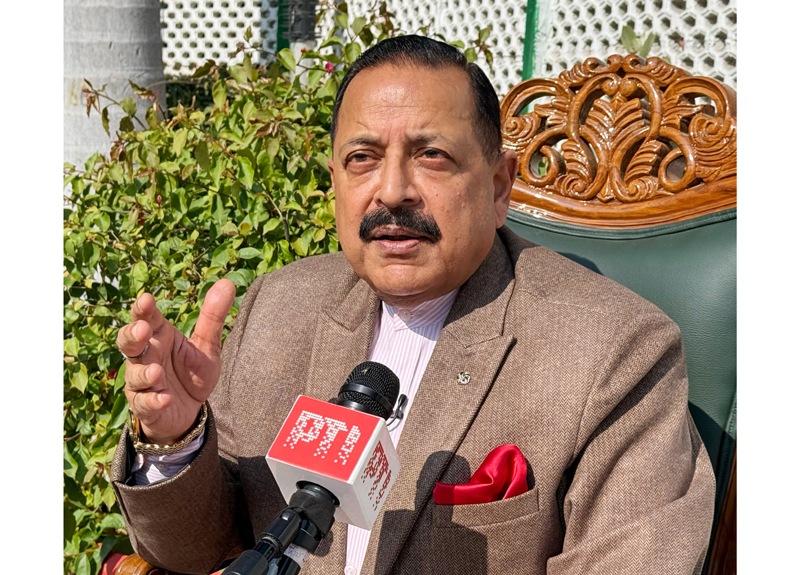Excelsior Correspondent
NEW DELHI, Feb 5: During an exclusive media interview today, Union Minister Dr. Jitendra Singh discussed the “Nuclear Mission” outlined in the Union Budget for 2025-26, which he believes will signal a significant transformation in India’s energy sector. He highlighted that private investments will play a crucial role in establishing nuclear power as a leading energy source in the country.
Dr. Singh emphasized the essential role of nuclear energy in ensuring India’s energy security and mentioned the government’s forward-looking strategy for the nuclear sector, which aims to promote self-sufficiency in energy production.
He praised the groundbreaking decision to provide tax relief for incomes up to Rs 12 lakh, stating that this measure will bring relief to a vast segment of the population while also positively impacting the economy.
In a significant move, Dr. Singh welcomed the announcement allowing private sector participation in India’s nuclear energy sector. He described this initiative as “revolutionary,” noting that the sector had operated with limited transparency for 60-70 years. The newfound openness and collaboration are expected to catalyze innovation and growth in nuclear energy, aligning with the vision of Aatmanirbhar Bharat.
Drawing parallels to Prime Minister Narendra Modi’s decision to liberalize the space sector, Dr. Singh expressed confidence that a similar surge in innovation and growth will occur in the nuclear domain, enhancing energy security.
Recognizing the heavy reliance on petroleum imports, he reaffirmed the government’s commitment to promoting clean and sustainable energy. He stated definitively that nuclear power will be a vital component of India’s energy strategy.
The government has initiated the Nuclear Energy Mission for Viksit Bharat, which aims to fortify domestic nuclear capabilities, encourage private involvement, and implement advanced nuclear technologies.
Dr. Jitendra Singh pointed out that India’s nuclear power capacity, currently at 8,180 MW, is expected to grow to 22,480 MW by 2031-32, with ten reactors under construction in states including Gujarat, Rajasthan, Tamil Nadu, Haryana, Karnataka, and Madhya Pradesh. Additionally, plans for ten more reactors are underway, including a significant 6 x 1208 MW nuclear power facility in partnership with the USA at Kovvada, Andhra Pradesh.
He reiterated India’s resolve to reach 500 GW of non-fossil fuel energy generation by 2030, in accordance with its COP26 commitments and PM Modi’s vision of achieving net-zero emissions by 2070. Dr. Singh highlighted that it was Prime Minister Modi who launched the Mission LiFE and emphasized an integrated governmental and scientific approach to nuclear and biotechnology advancements.
Dr. Singh also introduced the recently launched BIOe3 Policy, a pioneering initiative aimed at spurring a biotechnology-driven industrial revolution. He noted the establishment of BIRAC to support biotech startups and foster collaboration with the Department of Biotechnology. India has already made strides in biotech, achieving milestones such as the development of its first antibiotic Nafithromycin and the Human Papilloma Virus (HPV) vaccine.
In conclusion, Dr. Jitendra Singh stressed that the initiatives for nuclear power in the Union Budget 2025-26 represent a pivotal change in India’s energy landscape. By expanding nuclear energy as a sustainable, scalable, and secure power source, the government seeks to enhance energy security while achieving long-term economic and environmental goals. He reiterated that the Nuclear Energy Mission for Viksit Bharat is set to propel the development of nuclear power, positioning India as a global leader in advanced nuclear technology by 2047.


Leave a Reply